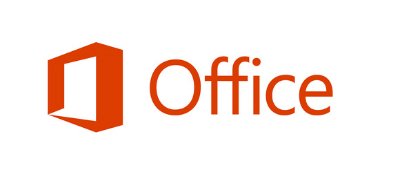.jpg)
Honestly, keeping documents in one place and editing them in another complicates the work process much enough. More editing suites are releasing the integration apps for ownCloud, Nextcloud, FileCloud and others while offering slightly different values to users. What to choose depends on the cloud service you nest in, or what types of documents you and your team work with, and how.
Sharing a cloud platform with colleagues gives no time to test every option, and in some cases, there are two or three to look at. In this piece I combined my experience with user feedbacks gathered around the web to give an outline of what the market offers, whether you are seeking a mighty spreadsheet processor or a robust collaboration feature set:
Office Online

Integration: SharePoint, FileCloud, Egnyte
User portrait: Loves Microsoft Office, stability perfectionist, has extra budget, certainly not an accountant.
Office Online by Microsoft is an online version of its desktop ancestor, receiving its neat design, however with significantly cut formatting instruments. It lacks table settings and macros, has weak formula processing and limited graph creation tools. Notably, since there is no graph and auto-shape editing supported, these will be converted to images if the file you open contained such elements.
The suite works with its native OOXML (docx, xlsx, pptx) formats, however allowing doc, dot, ppt, pps and xls for opening only. OpenDocument odt, ods and odp are also supported, with inner conversion.
Office Online offers collaborative editing: it's real-time in Word and Excel, while PowerPoint shows changes only after actions with an object are finished. The platform includes commenting, chat and history of document versions.
One nuance, possibly critical for some, is that even when Office Online alone is provided for free, the user still needs an Office 365 subscription to integrate MS editors in a third-party solution. More to add here, Office 365 cannot be deployed on own server, signaling those sensitive about security and data control.

Integration: ownCloud, Nextcloud, SharePoint, Confluence, Alfresco
User portrait: In need for academic formatting, a fan of open source, needs to complete a team paper by the evening.
ONLYOFFICE is a document editing suite with OOXML formats as a core, which makes it fully compatible with MS Office documents. It supports doc, docx, odt, rtf, txt, pdf, html, epub, xps, djvu, xls, xlsx, ods, csv, ppt, pptx, odp. It easily handles complex formatting and objects in the text, offers various templates for both text and spreadsheet editors. However, the toolbar lacks a couple of items in spreadsheets like pivot tables.
The real highlight of OnlyOffice is its co-editing features. All changes proceed immediately in real time and the response is free from any bugs when multiple people edit the document simultaneously.
There are Strict and Fast (default) co-editing modes available, allowing to edit selected piece of the document in private or openly in real time, respectively. Collaboration features also include inbuilt chat, comments, revisions and version history.
Collabora Online (LibreOffice)

Integration: OwnCloud and Nextcloud, Kolab, Pydio, Seafile, IceWarp, AG-I Solutions, Alinto, VNCLagoon, FileCloud
User portrait: Works in ten cloud services, also a fan of open source, has a MacBook and a degree in programming.
One of the most widely integrated editing suites today, Collabora offers various calculations in spreadsheets and text docs, however with a lack of some professional tools in paragraph and bibliographical styles, in tables and charts. There are general text formatting nuances when working with side files as well, especially densely formatted MS Office docs. Nonetheless, the interface remains rich as it completely migrated from LibreOffice in all its glory.
Collaboration in Collabora Online offers a well-developed mechanism that makes it almost side-to-side competitive with ONLYOFFICE. As in two previously discussed suites, Collabora supports commenting and version history. More to collaboration, if working from Nextcloud or ownCloud, users can invite others for co-editing via external link with no need for them to have an own account.
Collabora Online, like LibreOffice, takes ODF formats (odt, odp, ods) as a core. The suite also supports working with txt, csv, pdf, html, Apple formats (Pages, Numbers, and Slides) and many other seldom used extensions.
With all the goods of Collabora, some face struggle with the installation of CODE (Collabora Online Development Environment). The app setup requires non-basic expertise to run properly, as many users report.
Amazing post @saintmisha have a happy journey here
i just upvoted your post and following you .i hope you will follow me back
Downvoting a post can decrease pending rewards and make it less visible. Common reasons:
Submit